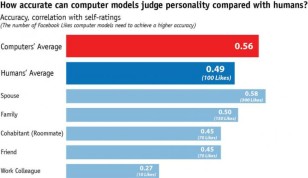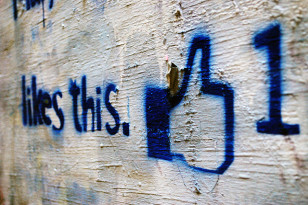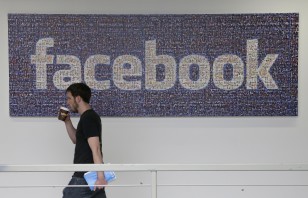A new Anglo-American study has provided evidence that the ‘digital footprints’ you leave behind on your visits to social media websites such as Facebook can reveal more about your personality than your family or best friends.
Researchers at California’s Stanford University and the UK’s University of Cambridge constructed a computer model that mined the Facebook Likes of some 86,220 volunteers who also filled out a 100 question personality survey through a Facebook app called ‘myPersonality’.
The researchers found their computer model was better able to forecast an individual’s personality than family members and close friends.
The new study was built on research conducted by the University of Cambridge back in 2013 that found Facebook ‘likes’ could accurately forecast a number psychological and demographic traits.
The study found that the computer, by analyzing a mere 10 Facebook ‘likes’, was better able to predict an individual’s personality than a co-worker. With 70 ‘likes’ to study, the computer did better than a friend or roommate and 150 ‘likes’ to gauge personality traits better than parents or siblings.
With enough Facebook ‘likes’ to analyze, the study showed that only the spouse came as close as the computer model for accurately tracking psychological traits. The computer model needed to analyze at least 300 ‘likes’ before coming close to making its personality forecast compared with the same accuracy as a significant other.
To get an idea of just how accurate their new system was in forecasting personality traits, the research team compared the results of findings made by the new computer model to a number of past psychological studies that only used family and friends to judge personality traits. The researchers found that their new computer model was able to produce results that were similar to the averages produced by the person-to-person studies.
The study volunteers who used the ‘myPersonality’ app also had the chance to invite their family and friends to weigh in on the volunteer’s personality traits by filling out a shorter – 10 question – version of the 100 item questionnaire.
Describing their findings as an “empathic demonstration” of the computer’s ability to unveil personality traits through purely scientific data analysis, the British/American collaboration also said that their investigation provided an “important milestone” by showing how non-human devices such as computers can get to know us better than what had been thought. The research team also said that their work provides some insight into better human-computer interactions.
“In the future, computers could be able to infer our psychological traits and react accordingly, leading to the emergence of emotionally-intelligent and socially skilled machines,” said lead author Wu Youyou, from Cambridge’s Psychometrics Center in a university press release.

This is a graph showing accuracy of Stafford/University of Cambridge computer model’s personality judgement compared with humans (Wu Youyou/Michal Kosinski)
The research team in addressing concerns about privacy, especially as communications/computer technology continues to develop, said that they support policies that would give online users total control over their digital footprint.
The research team believes that their findings, which could lead to the development of quick, accurate, and inexpensive personality appraisals, may prove to be quite useful in helping people make better decisions in areas such as personnel screening and recruitment to choosing a romantic partner.
The Stanford/University of Cambridge study was published today in the journal the “Proceedings of the National Academy of Sciences”.























Interesting… in this website http://youarewhatyoulike.com I got my personality profile. I think it’s the real app based on the study described in this article